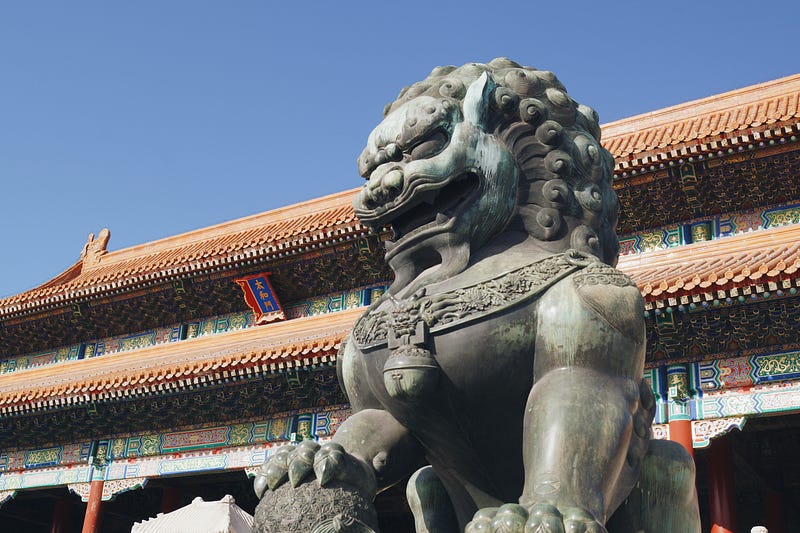The Brittle Empire
Whatever else it is, the power of the Chinese Communist Party is brittle.

For Taiwan, there is bad news and worse news.
Bad news; the People’s Liberation Army might not move on Taiwan in 2023. Worse news; That’s only because the Chinese Communist Party has been heavily interfering in Taiwan’s upcoming 2024 presidential election and likely hopes to take over the country that way — in a bloodless coup.
Under the CCP’s One China policy, Taiwan — like Hong Kong before it — is considered part of China in the same way Vladimir Putin considers Ukraine part of Russia.
It isn’t the only parallel between the two conflicts, one having already escalated to a late-stage hot war and the other likely to in the near future. The CCP’s Xi Jinping has undoubtedly been watching Putin’s struggles in Ukraine with a mind to avoiding such a long, painful, and embarrassing conflict himself.
In Hong Kong, of course, the CCP was lucky. Covid19 did what the People’s Liberation Army tanks could never have done without a deafening outcry from the international community. The millions-stong, faultlessly peaceful marches, and protests for democracy were cleared, and suppressed; demonstrators dispersed. For their own good naturally; for the sake of public health only, of course.
Still, when the Covid19-lockdown dust settled on Hong Kong, nothing remained of the pro-democracy movement except a few instigators and public officials being loaded onto buses by Chinese authorities, bound for unknown futures on the mainland.
Covid19 bought the CCP enough time to fully consolidate its political power in Hong Kong. It is now illegal to even run as a pro-democracy candidate in Hong Kong.
Besides the bad news and the worse news for Taiwan, there may be a tiny ray of sunshine on the horizon.
Vladimir Putin’s struggles in Ukraine haven’t gone unnoticed in any corner of the world. The wish to avoid the same challenges must be a strong motivation for Xi Jinping and his cohort.
Covid19 is lightning unlikely to strike twice in favor of the CCP. Should the people of Taiwan put up a fight — which they likely will — the CCP will not be able to use Covid19 a second time as a pretext to crush dissent.
And Chinese Communist Party chief Xi Jinping can’t afford to lose a conflict in Taiwan. However tense the situation between the United States and China, whatever threat posed by China’s geopolitical opponents, they are nothing compared to the true threat to Xi Jinping’s absolute power in China.
Xi Jinping isn’t afraid of the United States; he isn’t afraid of Joe Biden. Xi isn’t afraid of NATO.
The biggest threat to Xi Jinping is…1.4 billion Chinese people.
The Chinese Communist Party is currently ruling in an intranet-isolated surveillance state where political dissent is routinely prosecuted as one of the top ten crimes in China.
At any given point in time, Xi Jinping has the most to lose from…his second in command. And his third. And whoever is next in line after that. Every high-level official in the Chinese Communist Party — new and old — every military commander; even ultra-wealthy CEOs in China pose a potential threat to Xi’s power.
Behind every ruler is a cache of underlings anxious to stab Caesar to death in the Senate; most times metaphorically. Sometimes not. From Judas Iscariot to Et, Tu Brute; far away enemies can’t do as much damage as the false friend, the betrayer, the Benedict Arnold.
Those ruling by force — without the consent of the governed — know a day will come when someone willing to use more force will depose them.
The only way a tiny group of people can rule over a much larger group peacefully is with the consent of the governed and Xi Jinping doesn’t have it. Governments with the consent of the governed don’t need to create the most sophisticated surveillance state the world has ever known. It is the stated goal of the CCP to be able to find anyone, anywhere in China, in under 3 minutes.
No government with the consent of the citizens it governs needs to be able to find and detain anyone — anywhere — in three minutes.
If the Chinese Communist Party had the consent of the governed, it wouldn’t need the Great Firewall of China to keep Chinese citizens from accessing the same internet enjoyed and reviled in equal parts by the rest of the global community.
With the consent of the governed, “political dissent” wouldn’t be one of the top ten crimes in China; the CCP wouldn’t be abusing Interpol’s Red Notice system to arrest Chinese dissents who manage to flee the country.
The CCP’s regime, with Xi Jinping poised precariously at the top, is brittle.
If Xi’s regime weren’t so brittle, a female tennis star who accused a CCP official of sexual assault wouldn’t need to disappear from the public eye, only to reappear in an apparent hostage video to rescind and disavow her claim; they would just fire the guy.
Not long ago, China’s wealthiest man voiced an obscure comment about China’s future — which could hardly be deemed a sharp criticism of the Chinese government. He, too, dropped from the public eye, leading to fears from the international business community. When he resurfaced, he was no longer the richest man in China.
Whatever the future might hold for Taiwan, the empire of the Chinese Communist Party isn’t indestructible; and it isn’t infallible.
The weaknesses of Xi Jinping’s empire might stay his hand for a decade.
Or forever.
(contributing writer, Brooke Bell)